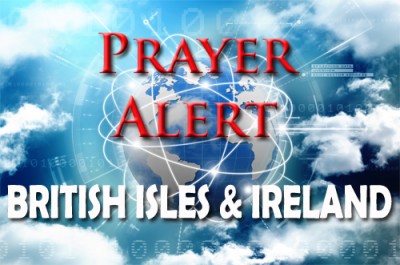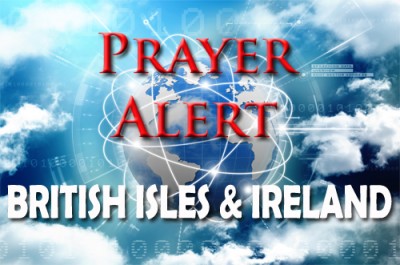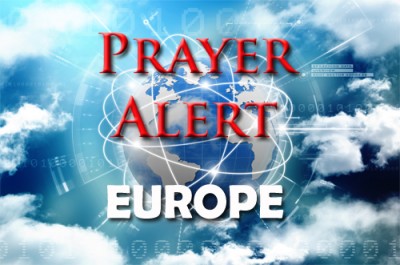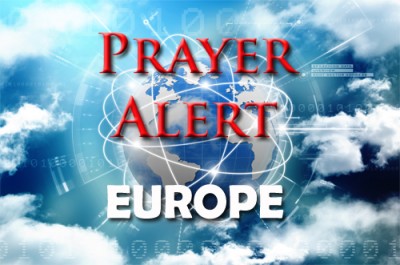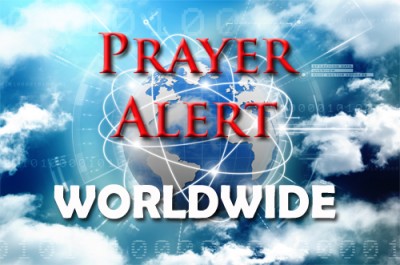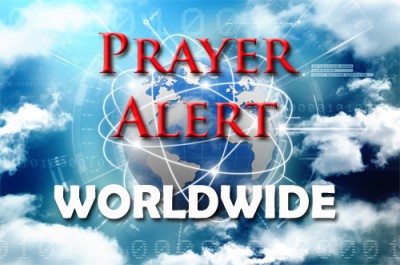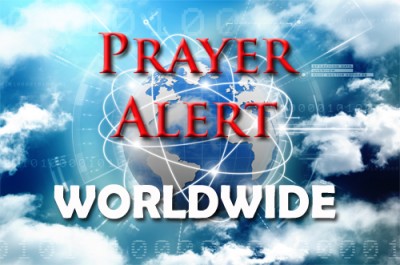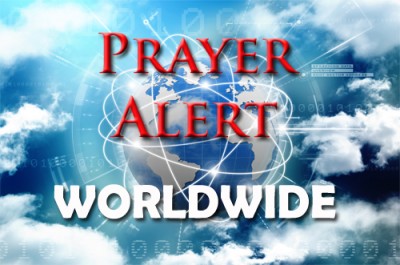Pray for Scotland
08 Dec 2017Numbers are falling in the Church in Scotland, church buildings are closing, and in a recent survey 51% said that they have no religion. However, there is a ‘stirring’ going on under the surface. The Church has often been called the ‘sleeping giant’. We may be experiencing a reduction in numbers but, as the story of Gideon’s army tells us, numbers are not everything when it comes to accomplishing the plans and purposes of God for a people and a nation. The sleeping giant is starting to awake from its slumber! There have been many local outreaches, summer missions, etc, which, together with the excellent Alpha courses, have borne fruit with folk coming to Christ. With Ffald y Brenin, we can pray, ‘O High King of heaven, have mercy on our land. Revive Your church. Send the Holy Spirit for the sake of the lost, the least and the broken. May Your Kingdom come to our nation. In Jesus’ mighty Name. Amen.’
Churches and a new mental health report
08 Dec 2017The Christian mental health organisation Livability called for churches to be more honest about life's difficulties. A survey found that half of UK adults (26 million people) would feel uncomfortable or unsure about telling others if they experienced a mental health problem. The director of Livability said, ‘It's about creating communities where we talk about our well-being. There's a real need for us to start normalising the level of conversation that we have in our churches. There's a negative impact when we don't talk about these things.’ He encouraged churches to move away from criticism and adopt a culture of honesty, with leaders talking about their own emotional and mental well-being. The survey found that people aged between 16 and 24 are most likely to experience mental health issues. To be called a ‘snowflake’, implying that you are easily offended or hurt, is damaging to mental health.
Europe: prayers for protection
08 Dec 2017On 9 December it will be one year since the attack on the Christmas market in Berlin. Europe is on a high level of alert for possible terrorist attacks. In many countries there will be Christmas bazaars, street nativity scenes, carols, and other seasonal events. Pray for God to give a double portion of wisdom and discernment to police and military personnel as they work to keep our borders and streets free of terrorists and terror attacks. Pray for God’s perfect networking and communication between those whose job is to detect dangerous individuals, identify and safeguard potential soft targets, and monitor distrusted individuals. May there be early detection of any planned attacks this Christmas. In England in 2016 combat teams worked undercover to protect Christmas shoppers from an attack in London’s Oxford Street. Pray for the success and protection of all undercover workers this Christmas season.
EU / Turkey relationships
08 Dec 2017Turkey-EU ties are currently marked by mutual resentments and appear to be going nowhere. In a sign of the times, Brussels is withholding 175 million euros in pre-accession funds for Turkey, which on paper remains a candidate for EU membership. Ankara says it doesn’t need EU money or membership, but it is developing ties with individual EU members, which seems to be a search for another kind of relationship with Europe. French president Emmanuel Macron, who has emerged as Erdogan’s principal European speaker, said Turkey is a partner in many crises Europe faces, notably the immigration challenge and the terrorist threat. Countries such as Germany and France are angry about EU citizens arrested in Turkey on what they say are trumped-up charges linking them to the Kurdistan Workers Party (PKK) or the so-called Fethullah Gulen Terror Organisation (FETO). They are accusing Ankara of holding these people hostage.
Israel: Trump recognises Jerusalem as capital
08 Dec 2017In 1995 the US passed the ‘Jerusalem Embassy Act,’ which formally recognised Jerusalem as Israel’s capital and called for their embassy to move there from Tel Aviv. With overwhelming support it passed the Senate by 93 to 5. President Trump has now implemented that decision. Israel’s intelligence services minister Yisrael Katz said, ‘The Palestinian reaction is a rejection of Israel’s right to exist as a Jewish state, just as Arabs did 70 years ago.’ He also said that this action will make it clear to Palestinians that they too must recognise Israel, which is necessary for the peace process. He said Israel would take economic steps to help the Palestinians, singling out the regional railroad project currently being proposed. Manuel Hassassian, Palestinian representative to Britain, warned, ‘Trump is effectively declaring war in the Middle East’. See also
Global: do Mormons know Jesus?
08 Dec 2017Jesus is the central character in the Christmas story. But 15 million Mormons have a false understanding of Him, believing that the Father, Son, and Holy Spirit are three gods. They believe the lie that salvation depends on their works instead of on the work of Jesus Christ; and the Heavenly Father began as a spirit child, came to earth to gain a body, and earned his way to godhood. Many good works are required for Mormons to earn the privilege of living with the Heavenly Father in the next life. One ‘good work’ is temple work for the dead - a person can be saved after they have died when temple works are completed by those still living. Mormonism teaches that man is not born in sin and cannot sin until the age of eight; and Eve’s disobedience was ‘a fall upward, a necessity for eternal progression toward godhood’.
Global: freedom of thought regressing
08 Dec 2017Asia Bibi, a Pakistani Christian woman who has been on death row for blasphemy since 2010, has been nominated for this year’s Sakharov Prize for Freedom of Thought. The 2017 report by the International Humanist and Ethical Union, presented on 5 December, should be alarming to all who care about freedom of thought and expression, as it shows ‘a pattern of regression on a global scale’. It shows that 85 countries have at least one law or symptom of ‘severe discrimination’ against those who think or believe differently; the free thinkers. Thirty countries are guilty of ‘grave violations’ such as prescribing the death penalty for apostasy, or ‘religious instruction in a significant number of schools, of a coercive fundamentalist or extremist variety’. See also the next article, about Canada’s religious freedom in schools.
Canada: religious freedom denied
08 Dec 2017Canadian father Steve Tourloukis - who featured in television commercials for the Coalition for Marriage - has been fighting a legal battle since 2012 to protect his parental rights and religious freedom. The legal battle has just come to an end, but not in the favour of Mr Tourloukis - or Canadian religious freedom. He initially sent a letter to the school board asking that his children be opted out of the sexual education programme, since many of the messages in the class directly conflicted with his religious beliefs. He specifically mentioned that he was concerned about the ‘discussions or portrayals of homosexual/bisexual conduct and relationships and/or transgenderism as natural, healthy or acceptable’. When they refused his request, he took them to court, but Ontario’s appeal court has ruled against him, and against the International Covenant on Civil and Political Rights.
